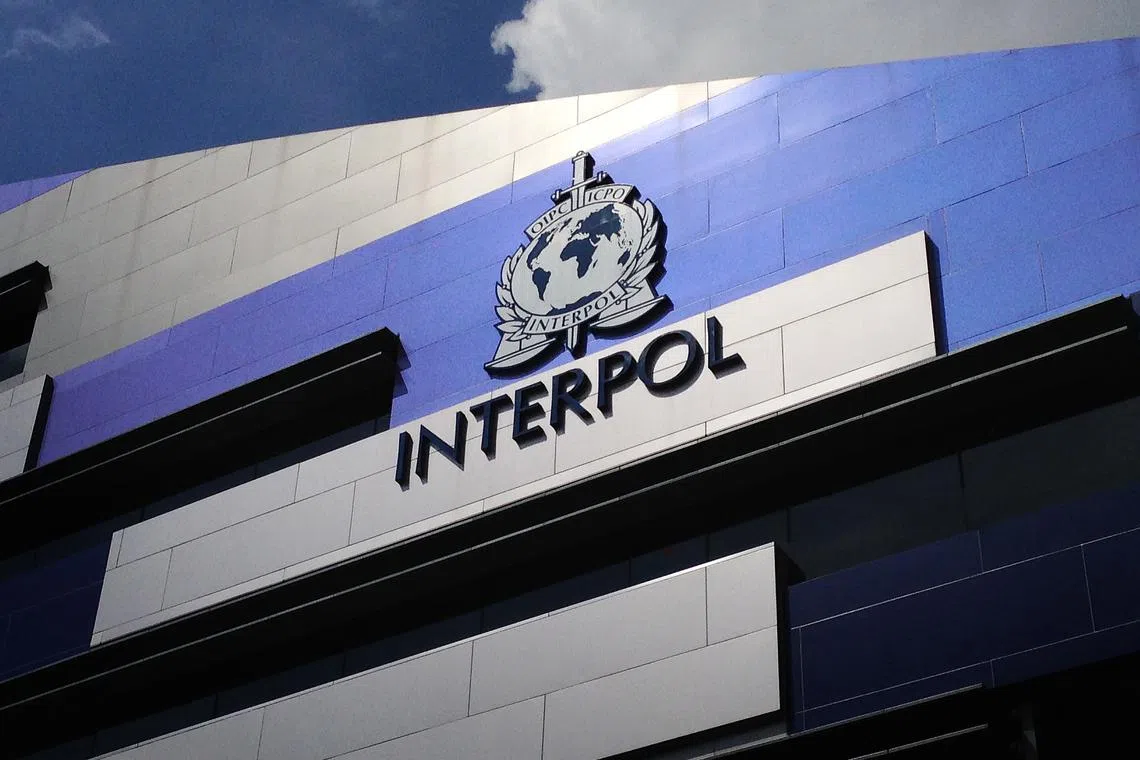S’pore to work with Interpol member countries to track down assets of transnational criminals
Sign up now: Get ST's newsletters delivered to your inbox

The Singapore police will apply national laws and policies in responding to the Silver Notice launched by Interpol on Jan 10.
ST PHOTO: ALPHONSUS CHERN
SINGAPORE – The Republic will work with member countries of global police organisation Interpol to track down assets linked to transnational crime.
It follows the introduction of the Silver Notice,
In reply to queries from The Straits Times, the Singapore Police Force (SPF) said that it will apply national laws and policies in responding to the new notice.
Interpol has a number of colour-coded notices, which are international requests or alerts for cooperation from member countries.
The Red Notice, for example, is issued to seek the location and arrest of an individual wanted for prosecution or to serve a sentence.
Interpol’s Silver Notice is being rolled out in a pilot phase involving 52 countries and territories, including Singapore. It will run until at least November.
SPF said the Silver Notice specifically targets illegal proceeds of crime.
A spokesperson said: “Member countries may seek information on criminal assets and subsequently use such information as a basis for bilateral engagement, including but not limited to bilateral requests for seizure, confiscation and/or forfeiture of assets subject to countries’ respective domestic laws and policies.”
The spokesperson noted that, as with other Interpol notices, member countries would apply their national laws and policies in responding to the Silver Notice.
“Singapore, likewise, will render assistance within the ambit of our laws, in facilitation of effective bilateral cooperation.”
The Italian authorities have requested the first Silver Notice, seeking information on assets worth more than €500 million (S$706 million) belonging to a senior mafia member.
Even before the introduction of the new alert, Singapore had in July 2024 assisted Malaysia with the seizure of assets in the Republic linked to the 1Malaysia Development Berhad (1MDB) case.
This was after court orders were obtained here for the release of about $103 million of seized money to the Malaysian government.
About $164 million of 1MDB-related assets in Singapore remain seized or prohibited from disposal, including about $101 million linked to Malaysian fugitive Low Taek Jho and his family.
At Singapore’s request, Low, along with his close business associate Tan Kim Loong, was issued the Interpol Red Notice in 2016.
Over the years, Singapore has beefed up its laws to deal with transnational crime.
In August 2024, Parliament passed the Anti-Money Laundering and Other Matters Act
Under the law, the court in Singapore can order the sale of seized properties if the value of the property is likely to depreciate, or undue costs are involved in maintaining it, and if the sale is in the interests of justice.
The law allows law enforcement agencies to lower the cost of maintaining seized properties and preserve their value.
Law and Home Affairs Minister K. Shanmugam revealed in May 2024 that the police spent nearly $650,000 to maintain the assets seized or frozen in relation to a $3 billion money laundering case.
Ms Helena Huang of the S. Rajaratnam School of International Studies said organised crime syndicates are increasingly holding their assets across multiple geographical locations, which makes them challenging to track down.
Ms Huang, an associate research fellow in digital impact research, said criminal assets typically include property, vehicles and financial accounts.
She noted that with the Silver Notice, Interpol member countries will be less dependent on multiple bilateral arrangements to identify and investigate assets obtained through criminal means.
“This means investigators can now piece together information on the international flow of assets in a more timely manner,” she said.
Ms Huang added that the notice can help the authorities freeze or confiscate assets before the criminals further launder or conceal them in creative ways.
“This is useful because it disrupts the financial flow of criminals and can potentially hold criminals back from continuing their illegal operations at their usual scale,” she said.
Samuel Devaraj is a crime and court journalist at The Straits Times.



